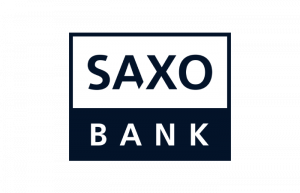iFX EXPO in retrospect: Industry leaders speak out on innovation vs treading old ground
As we all headed home from this year’s iFXEXPO in Dubai last month, the euphoria of being in one of the world’s most modern, sophisticated, and business-friendly cities has given way to the stark reality of counting the potential cost vs reward of attending such a prestigious event.

Among the various written dialogs that proliferated LinkedIn and other corporate media channels during the advent of the event were anticipation-filled previews of what subjects were to be discussed, and which company would be launching which new service, as well as invitations to meet various executives at their booths and discuss potential B2B partnerships which, among other things, is how we innovate and move the electronic trading industry forward.
Perhaps nowadays within the electronic trading industry, it is now time to ask whether certain practices that were once considered standard are still relevant and effective. From the offering of swap-free accounts without proper due diligence to the persistence of broker-to-broker arbitrage for both B2C and B2B clients, is it time to scrutinize and reevaluate industry norms?
For this feature article, FinanceFeeds gathered insights from industry thought leaders on innovation versus tradition within the FX/CFD brokerage industry, following discussions at the iFX EXPO Dubai 2024.
“The current state of the FX industry showcases a lack of innovation and an alarming trend of “me too” brokers. FX brokers are no longer just competing with other FX brokers – they have to compete with stock and crypto exchanges as well. The bigger firms understand this and are spinning off brands to better compete. Eventually, I am sure the smaller firms will jump on the bandwagon – but what’s the next big innovation for these companies (both FX and stock broker) when the playing field becomes flat?,” said Ross Soodoosingh from Huddle Fifty.
James Dewdney from Saxo Bank added, “Despite the retail market evolving at a healthy canter, expo narratives have largely stood still. With the major exception being peaks and troughs of interest in crypto, most themes are recycled YoY. Arguably the most important theme, which doesn’t get enough air time, is delivering the best outcomes for retail clients. Brokers operating internalization models on leveraged products have a complicated relationship with this. Diversification from leveraged products to fully funded securities offers future-proofing for retail brokers, whilst extending target audiences and client lifetimes. It also presents complimentary recurring revenue streams. Custodians of actual assets no longer have to be victims of the vix. Many ETFs today embed leverage, VILX offers x2.25 on the S&P 500, increasing purchasing power for high-conviction trades.”
Drew Niv from TraderTools warned: “For the industry to mature into one where companies can go public, get a decent valuation, and have real resale value, earnings consistency needs to be near the top of the list for CEOs.”
Challenging the status quo
Just after the conference concluded, reflection on current practices began to take place, with Anya Aratovskaya of Advanced Markets having taken the debate to the public arena with a few subjects that perhaps should be looked at for overhaul. Published on LinkedIn, she began by looking at swap-free accounts, asking the question “Are we still extending swap-free accounts without meticulous scrutiny of Power of Attorneys (PORs)?” She considered that the implications of overlooking such details can lead to unforeseen challenges for both brokers and clients.
Moving on to aspects surrounding the handling of customer support, Ms. Aratovskaya floated the idea that perhaps companies that position “best state-of-the-art customer support” as a primary selling point might be losing their charm.
“The problem is that companies rarely do really care about client longevity and instead fall for less convoluted route of business growth – funneled leads and accelerated volume which inevitably results in high churn rate and a growing number of dissatisfied customers, who are then picked up by another similarly positioned brand,” said Anton Sokolov from Brokeree Solutions. “Even if such a strategy works during healthy market conditions, it just falls short when overall volatility slows down. It leaves us with brands who actually focus their attempts at building a better service, rather than crafting a unique offering. Any offering can be made to sound enticing and fascinating, but if the quality of a provided service or customer journey is shambles, customers won’t stay for long.
Brokeree’s Sokolov continued, “This is especially true when client protection is not in place at all and traders are left on their own. Consequently, we now see how prop firms (a.k.a. Trader Funding Firms) are getting more attention due to the mere nature of their service. What I see is that many of our industry think about traders as a single blob without actually recognizing their unique requests thus we end up with thousands of companies running on a similar infrastructure hoping to replicate the success of each other. When in fact, they should focus on establishing continuous communication with their clients and building a genuinely unique service catering to the needs of their clientele. This is what OG white-labels were supposed to be doing and we as an industry might not have nudged them to the right direction resulting in a saturated market, which might not have been the only way of development.”
Next generation of platforms for next generation of traders
Clients today may look toward seeking tangible value beyond mere promises of exceptional service. It could be that the diversification of product range is more important in the modern era in which the new generation of traders have become accustomed to intuitive applications which are often self-directed and mobile-first. As those end users begin to move toward trading the markets, they might begin to view exceptional service as the way in which the user-friendliness of mobile apps are starting to become considered the actual service itself.
On this matter, FinanceFeeds spoke to Andrew Saks, Chief Product Officer of multi-asset trading platform company TraderEvolution Global, who explained “It is becoming increasingly vital that many brokers need to differentiate themselves from the competition and move on from the single-asset origins upon which they were established in order to evolve and not become stagnant, or lose vital business to newer and more dynamic competition from outside the traditional margin trading industry such as Robinhood which managed to attract a good market share via offering commission-free stocks in a totally proprietary platform designed for the modern world.”
“Additionally, traders coming to the world of traditional asset classes such as futures, equities, stocks or FX/CFD from the crypto world where intuitive mobile platforms are key differentiators between exchanges and are often very modern and user-orientated” continued Mr Saks.
As the retail B2C sector becomes increasingly saturated, the question has arisen surrounding traditional retail brokers having to continue to differentiate themselves. It could even be considered that the electronic trading industry itself is poised for significant changes such as mergers and the rise of funding firms replacing retail brokers may reshape the landscape.
“In response to these industry shifts, retail forex brokers are diving headfirst into the excitement, strategically embracing prop trading firms as part of their offerings. This strategic move aims to diversify services and capitalize on the momentum generated by funding firms,” said Tarek Abdullah from Spotware Systems.
Mohammad Isbeer from Equiti Group said: “Regarding funding firms getting involved, I see this happening more with B2B brokers than retail due to their business maturity and revenue stream stability. That doesn’t mean B2C brokers are immune, but I would say consolidation is more likely where bigger companies can absorb smaller ones for geographic expansion – or smaller firms seek acquisition to reduce risk or lack of capital. In that light, I think funding firms will seek out well-rounded fintech groups with multi-asset offerings and clear, stable revenue streams.”
The saturated retail market – Scalability is the key
On this point, Mr Saks explained to FinanceFeeds “Innovation and progress has been discussed at FinTech industry events for many years, however how such innovation should look in the context of the core trading system within a broker’s operations or the trading interface which is provided to traders is now a matter of great importance. Therefore, ongoing scalability via infrastructure which allows ongoing asset class differentiation should be a top priority for discussion.”
Mr. Saks further explained, “Having the proprietary capacity to differentiate by having the right infrastructure that allows scaling and differentiation on an ongoing basis, and to do so via other important products such as fully branded native mobile apps, or having the ability to add your own asset class extensions, or access large industry-standard social networks that have a lot of loyal traders such as TradingView, via integrated TradingView charts that allow TradingView users to execute their trades via TradingView are all areas by which retail brokerages can ensure that they are equipped to keep pace with changes as they come.”
“Brokers which ensure that they can easily add services, third party dynamic tools and can connect to any liquidity source within any global market are well positioned to avoid being restricted by their own infrastructure which inhibits the ability to cater toward new trends and avoid built-in obsolescence” concluded Mr Saks.
Equiti Group’s Isbeer added: “When talking about B2B and B2C saturation, it’s definitely affecting the industry but that does not make differentiation an impossibility. The space for differentiation lies in the intricate interplay of company DNA, structural setups, and a keen grasp of Tier 1 liquidity dynamics – but unfortunately, a lot of retail brokers seem hesitant to recognize that which has likely led to the lack of proper B2B or PoP in the space.”
“Are we still on for the fixed spread and taking risk on price differences with some offshore risk management consultants? Excel-based risk management anyone?” Anya asked in her LinkedIn post. The issue may seem even bigger, though.
“Some owners or senior risk managers in retail brokers have been giving me feedback about the Risk Management/bridge providers they work with in terms of customer service they have not been receiving,” said Sam Low from Liquidity Finder. “It seems that some firms, especially the more established firms, have been neglecting to offer customer service to their perhaps smaller clients. This is causing some of them to shop around for alternative solutions. They are sold the tech, but the feeling in some quarters is that they are then left to their own devices in terms of how to effectively deploy it to take full advantage of the technology. I know of one case in particular that led to a broker canceling their contract with an existing supplier and going elsewhere with the explicit reason being poor customer service.”
“I come from the marketing field, but in my job record there was no such industry that is so heavily dependent on fine-tuned marketing, and where 80% of brokers do not understand this,” said Elena Gorbacheva from Devexperts. “In essence, a Forex broker is a marketing agency working for just one client – themselves. Brokers do not sell any product, the only service they offer is access to liquidity to execute client orders. Essentially they all offer the same thing. Because they cannot really differentiate by betting only on tight spreads and commissions, they mostly fight with each other for every client with the means of louder banner ads and IBs posting photos near a Lambo. But there are more means and tactics. Therefore, their most advanced departments should be marketing departments that will work to attract and retain clients – top-notch product marketing managers, performance marketing specialists, etc. And it is especially surprising to me that 80% of young brokers let things slide (unless they were founded by ex-top management at a large Forex firm).”
In a market where differentiation is challenging, the electronic trading industry must adapt to emerging trends and explore innovative strategies. Questioning established norms becomes a catalyst for positive change, ensuring sustained growth and relevance in a dynamic environment.









